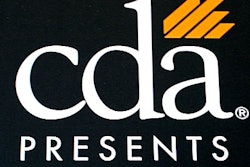
What happens when hundreds of thousands more children enroll in California's troubled dental Medicaid program, Denti-Cal? Part one of this series explored the the origins of this enrollment expansion and a California oral health stakeholder's hopes and concerns for the evolving program. In part two, learn how the Dental Transformation Initiative, a $740 million investment, hopes to improve the system.
Denti-Cal turns 50 years old in 2016 and recently reached the milestone of allowing every qualified child, regardless of immigration status, to enroll in the program. However, as the dental program expands, stakeholders have expressed concern that there aren't enough providers willing to take on Denti-Cal patients.
Denti-Cal providers have repeatedly expressed frustration over the program's low reimbursement rates and time-consuming paperwork. Most recently, the Little Hoover Commission, a state oversight agency, found some providers think it's even worth considering starting the program over from scratch.
 Alani Jackson is the division chief of the Medi-Cal Dental Services Division at the California Department of Health Care Services. Image courtesy of DHCS.
Alani Jackson is the division chief of the Medi-Cal Dental Services Division at the California Department of Health Care Services. Image courtesy of DHCS.To help address Denti-Cal's inadequacies, in November 2015, the U.S. Centers for Medicare and Medicaid Services granted California a $740 million, five-year waiver to improve the existing system. The resulting strategy is known as the Dental Transformation Initiative (DTI), and the state's Department of Health Care Services (DHCS) is hopeful that new programs and incentives paid for by the waiver will entice dental providers to take on more Medicaid patients.
"It is our hope that ... more providers will enroll in the program, serve Medi-Cal children, and expand access while increasing utilization for children," said Alani Jackson, division chief of the Medi-Cal Dental Services Division at DHCS, in an interview with DrBicuspid.com. "The DTI is also a turning point for the Denti-Cal program, as stakeholders and others recognize that DHCS is truly working to improve the program."
The initiative
The $740 million Dental Transformation Initiative is one part of California's Section 1115 waiver renewal, also known as Medi-Cal 2020. The federal waiver allows states to try various approaches to financing and delivering Medicaid or Children's Health Insurance Program (CHIP) services.
The initiative consists of four different but closely related domains, which focus on key aspects of dental health:
- Preventive oral healthcare service
- Caries risk and assessment and management
- Continuity of care

"This is the first time the state's neglected and underfunded dental program, Denti-Cal, has received this kind of attention and substantial investment," the California Dental Association said in a statement when the initiative was announced. "While the initial waiver guidelines stop short of offering a comprehensive program transformation, they deliver much needed fiscal incentives for preventive care, care to young children, and continuity of care."
Most domains will have a target goal for providers, and when dental professionals hit their targets, they will be rewarded with incentives, given out annually or twice a year, depending on the domain. For example, under Domain 1, providers who increase their preventive services by their unique target goal will get an incentive 75% above the standard reimbursement rate.
While the incentives will provide additional money when dental professionals reach specific goals, the DTI won't raise the widely criticized base reimbursement rates -- and the waiver makes that clear.
"Incentive payments from the DTI pool [$740 million] are intended to support and reward participating service office locations for achievements within one or more of the project domains set forth herein," the waiver states. "The incentive payments are not considered direct reimbursement for dental services under the state plan."
Focus on prevention -- with $10M on the line
Currently, just 14% of Denti-Cal's $1.3 billion budget is spent on preventive services, according to the Little Hoover Commission report. While dental disease is much less expensive to prevent than to treat, preventive dental care hasn't been a substantial focus of Denti-Cal in the past, but DHCS hopes to change that.
"The ultimate goal of the DTI is to increase the overall quality of care and utilization of preventive dental services for all Medi-Cal children," Jackson said. "The DTI represents a critical mechanism to improve dental health for Medi-Cal children by focusing on high-value care, improved access, and utilization of performance measures to drive delivery system reform."
The goal of Domain 1, in fact, is to increase the number of children in Denti-Cal receiving a preventive service by 10% within five years. The waiver also gives California the opportunity to earn additional funds by hitting even higher targets. Specifically, if the state can increase preventive services by at least 3% each and every year, then the state will earn an additional $10 million.
| Goal increase for preventive service utilization rate by year | |||
| Year | Target percentage | Percentage needed to receive $1M in additional funds | Percentage needed to receive $2M in additional funds |
| 2016 | 2% more than 2015 | N/A | 3% more than 2015 |
| 2017 | 4% more than 2015 | 5% more than 2015 | 6% more than 2015 |
| 2018 | 6% more than 2015 | 7.5% more than 2015 | 9% more than 2015 |
| 2019 | 8% more than 2015 | 10% more than 2015 | 12% more than 2015 |
| 2020 | 10% more than 2015 | 12.5% more than 2015 | 15% more than 2015 |
Room to experiment
While the first three domains outline action plans to achieve specific goals, Domain 4, local dental pilot programs, is broader, allowing organizations to pitch innovative projects that expand preventive care, assist with caries assessment and management, and increase continuity of care. The domain was created with unique communities in mind, such as rural counties where there are sometimes no dentists accepting Denti-Cal.
The projects pitched to Domain 4 can also use a variety of strategies to improve oral health, including different ways to deliver care.
"We are very excited at the opportunity Domain 4 presents to enable up to 15 local dental pilot programs to identify, implement, and monitor innovative strategies to further the goals of the existing three domains," Jackson said. "Their innovations and strategies may focus on urban or rural areas, care models, delivery systems, workforce, integration of oral health into primary care, local case management initiatives, education, or other concepts."
One caveat is that Domain 4 pilot programs must include a city, county, tribe, Indian health program, University of California campus, or California State University campus to coordinate the program. This requirement is in place because, even though those entities might not have existing dental infrastructure, they do have existing recording and reporting systems, the DHCS explained. Jackson also noted that the requirement was not meant to be exclusionary.
The Department of Health Care Services will select local dental pilot projects later this year, with the goal to implement the programs beginning in January 2017.
"We're very excited by the opportunity the pilot projects offer California's oral health community, not only to explore and assess new innovative strategies, but also to potentially expand current best practices identified by our dental community," Jackson said. "I can't wait to see the outcomes and increases in utilization for our Medi-Cal children."



















